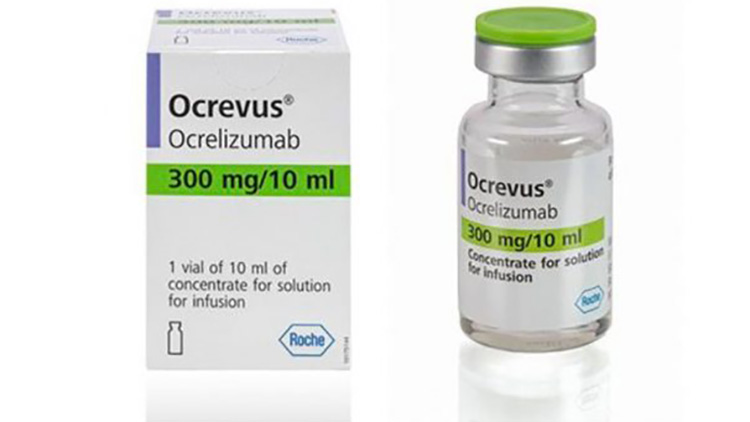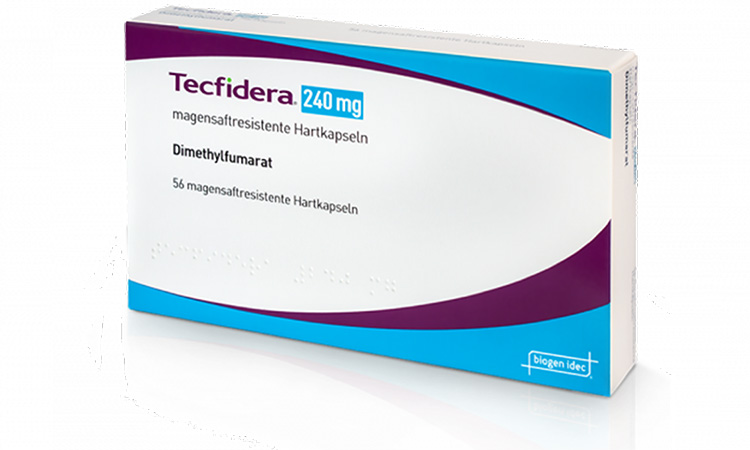Ocrevus (ocrelizumab) vs Tecfidera (dimethyl fumarate)
Ocrevus (ocrelizumab) vs Tecfidera (dimethyl fumarate)
Ocrevus (ocrelizumab) is an intravenous monoclonal antibody medication specifically designed to target CD20-positive B cells, which are believed to play a key role in the pathology of multiple sclerosis (MS), and is approved for both relapsing-remitting and primary progressive forms of MS. Tecfidera (dimethyl fumarate) is an oral medication that modulates the immune system, thought to work by activating the Nrf2 pathway, and is indicated for the treatment of relapsing forms of MS. When deciding between the two, patients should consider factors such as the route of administration, the frequency of dosing (Ocrevus is given as an infusion every six months, while Tecfidera is taken orally twice daily), and the different side effect profiles, in consultation with their healthcare provider.
Difference between Ocrevus and Tecfidera
| Metric | Ocrevus (ocrelizumab) | Tecfidera (dimethyl fumarate) |
|---|---|---|
| Generic name | Ocrelizumab | Dimethyl fumarate |
| Indications | Primary progressive multiple sclerosis (PPMS), relapsing-remitting multiple sclerosis (RRMS) | Relapsing-remitting multiple sclerosis (RRMS), relapsing forms of multiple sclerosis (MS) |
| Mechanism of action | CD20-directed cytolytic antibody | Nrf2 pathway activator, anti-inflammatory |
| Brand names | Ocrevus | Tecfidera |
| Administrative route | Intravenous infusion | Oral |
| Side effects | Infusion reactions, infections, skin cancer, depression, pain | Flushing, abdominal pain, diarrhea, nausea, lymphopenia |
| Contraindications | Active hepatitis B infection, history of life-threatening infusion reaction to ocrelizumab | Known hypersensitivity to dimethyl fumarate or any of its excipients |
| Drug class | CD20-directed cytolytic monoclonal antibody | Fumaric acid ester |
| Manufacturer | Genentech, Inc. | Biogen |
Efficacy
Ocrevus (Ocrelizumab) Efficacy in Multiple Sclerosis
Ocrevus (ocrelizumab) is a monoclonal antibody designed to target CD20-positive B cells, which are believed to play a key role in the pathogenesis of multiple sclerosis (MS). The efficacy of Ocrevus has been demonstrated in several clinical trials, including the OPERA I and II studies for relapsing forms of MS, and the ORATORIO study for primary progressive MS (PPMS). In the OPERA studies, Ocrevus was shown to significantly reduce the annualized relapse rate (ARR) compared to interferon beta-1a, a standard MS therapy. Additionally, Ocrevus treatment was associated with a reduction in the progression of disability and the number of lesions on MRI scans.
In the ORATORIO study, which focused on PPMS, a form of MS with fewer treatment options, Ocrevus was the first therapy to demonstrate a significant reduction in the progression of clinical disability sustained for at least 12 weeks, as well as for 24 weeks. The treatment also showed a significant reduction in the volume of brain lesions detected by MRI and a slower rate of brain volume loss, suggesting a potential benefit in slowing the progression of PPMS.
Tecfidera (Dimethyl Fumarate) Efficacy in Multiple Sclerosis
Tecfidera (dimethyl fumarate) is an oral medication approved for the treatment of relapsing forms of multiple sclerosis. Its efficacy has been established through pivotal clinical trials, such as the DEFINE and CONFIRM studies. In these trials, Tecfidera demonstrated a significant reduction in the ARR when compared to placebo and, in the CONFIRM study, when compared to glatiramer acetate, another MS medication. Tecfidera also showed a reduction in the number of new or enlarging brain lesions on MRI scans.
Furthermore, Tecfidera has been found to slow down the progression of disability in patients with relapsing forms of MS. It is thought to exert its therapeutic effects by activating the nuclear factor (erythroid-derived 2)-like 2 (Nrf2) pathway, which provides a protective response against oxidative stress that contributes to the pathophysiology of MS. Despite its efficacy, the use of Tecfidera may be limited by its side effects profile, which includes flushing and gastrointestinal events, and by the need for ongoing monitoring for potential decreases in white blood cell counts.
Regulatory Agency Approvals
Ocrevus
-
European Medical Agency (EMA), European Union

-
Food and Drug Administration (FDA), USA

-
Health Canada

-
Therapeutic Goods Administration (TGA), Australia

-
Medsafe (NZ)

Tecfidera
-
European Medical Agency (EMA), European Union

-
Food and Drug Administration (FDA), USA

-
Health Canada

-
Therapeutic Goods Administration (TGA), Australia

-
Medsafe (NZ)

Access Ocrevus or Tecfidera today
If Ocrevus or Tecfidera are not approved or available in your country (e.g. due to supply issues), you can access them via Everyone.org.
How it works

Make an enquiry
Choose the medicine you want to buy, answer a couple of questions, and upload your prescription to speed things up. We’ll get back to you within 24 hours.


Make an enquiry
Choose the medicine you want to buy, answer a couple of questions, and upload your prescription to speed things up. We’ll get back to you within 24 hours.


Breeze through the paperwork
We'll guide you through the required documents for importing unapproved medicine, ensuring you have all the necessary information.


Get a personalized quote
We’ll prepare a quote for you, including medicine costs and any shipping, administrative, or import fees that may apply.


Receive your medicine
Accept the quote and we’ll handle the rest - sourcing and safely delivering your medicine.

Some text on this page has been automatically generated. Speak to your physician before you start a new treatment or medication.
Let's talk
If you have any questions, call us or send us a message through WhatsApp or email:
Contact us




